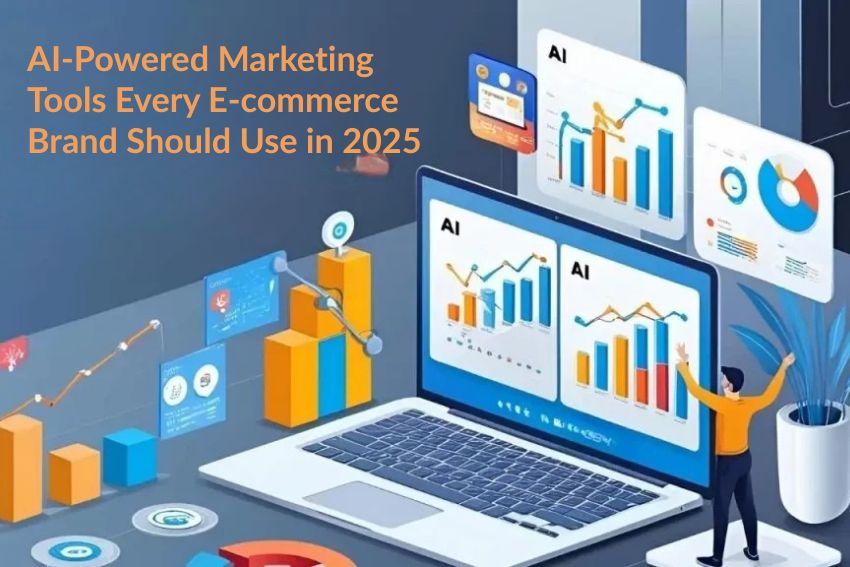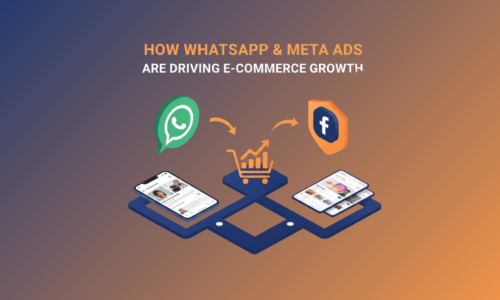
Artificial intelligence has become a driving force in digital marketing, especially for e-commerce brands aiming to stay competitive in a fast-changing landscape. As consumer expectations continue to evolve, personalization, speed, and data-driven strategies are more important than ever. In 2025, AI marketing tools are not just optional add-ons, they are essential assets for brands looking to attract, engage, and retain customers effectively.
Why E-commerce Brands Need AI in 2025
AI is transforming the way e-commerce brands approach marketing. With growing data sets, increased competition, and customers expecting instant results, traditional methods are no longer enough. AI helps automate routine tasks, improve decision-making, and deliver personalized experiences at scale.
From chatbots and recommendation engines to email automation and real-time analytics, AI marketing tools 2025 offer a wide range of capabilities that save time and boost results. These tools learn from user behavior, make predictions, and continuously optimize campaigns based on performance data.
For e-commerce businesses, this means better targeting, higher conversion rates, and more efficient resource use, all key factors in maintaining profitability in a saturated market.
Personalized Recommendations with AI Engines
One of the most valuable uses of AI in e-commerce is product recommendation. AI-powered recommendation engines analyze browsing behavior, purchase history, and real-time activity to offer highly personalized suggestions.
Tools like Shopify’s AI Recommender or Amazon Personalize use machine learning to create individual user profiles and update them dynamically. This increases the likelihood of conversions and improves the overall shopping experience.
By implementing these best AI tools for digital marketing, brands can create more relevant product pages, upsell complementary items, and encourage repeat purchases. This level of personalization was once limited to enterprise-level players but is now accessible to even small e-commerce sites.
AI-Powered Email Marketing Automation
Email marketing continues to be a high-ROI channel, but standing out in crowded inboxes requires more than generic newsletters. AI marketing tools 2025 are making email smarter by enabling advanced segmentation, content personalization, and predictive send times.
Platforms like Mailchimp AI and Klaviyo’s Smart Send analyze user behavior to craft tailored messages, select ideal send times, and even adjust subject lines in real time. These tools use machine learning to test variations and deliver emails that resonate most with each recipient.
This shift towards AI-led automation ensures that campaigns are not only delivered efficiently but are also more likely to drive engagement and sales.
Smarter Social Media Management
Managing multiple social platforms is time-consuming, especially when trying to tailor content for different audiences. AI-powered social media tools simplify this process by automating scheduling, content creation, and engagement analysis.
Solutions like Lately.ai and Ocoya generate social media posts using past performance data and trending topics. These tools can recommend optimal posting times, suggest hashtags, and even adapt tone and style to match audience preferences.
By using the best AI tools for digital marketing, brands can maintain a consistent presence across platforms without investing excessive time. These tools also provide insights on what content performs best, helping marketers refine their strategies over time.
AI Chatbots for 24/7 Customer Support
Customer service is a crucial part of the e-commerce experience, but providing instant support around the clock is often costly. AI chatbots offer a reliable, scalable solution that enhances customer satisfaction without increasing headcount.
Chatbot tools like Tidio, Drift, and ManyChat can handle order tracking, FAQs, returns, and even product recommendations. These bots learn from interactions and become more effective over time.
In 2025, more e-commerce brands are integrating chatbots with their CRM and inventory systems, enabling them to provide real-time updates and support. This not only saves time but also creates a smoother experience for customers.
Advanced AI Analytics Tools for Marketing
Data is essential for decision-making, but raw numbers alone are not helpful unless they’re interpreted correctly. That’s where AI analytics tools for marketing come into play.
Platforms like Pecan AI, Google Analytics 4 with machine learning models, and HubSpot AI Reports help marketers understand trends, customer behavior, and campaign performance. These tools can forecast outcomes, identify at-risk customers, and recommend actions based on historical data.
With these insights, e-commerce brands can optimize ad spend, personalize content, and predict future buying behavior. AI analytics tools for marketing turn complex datasets into actionable strategies that improve performance and ROI.
Visual Search and Image Recognition
AI is also reshaping how customers discover products. Visual search tools allow users to upload an image and find similar items instantly, making the shopping experience more intuitive.
Tools like Google Lens, Syte, and Pinterest Lens use image recognition to scan products and suggest alternatives. E-commerce platforms can integrate this technology to capture interest even when customers don’t know how to describe a product in words.
This application of AI marketing tools 2025 is particularly useful in fashion, home decor, and beauty, where aesthetics play a major role in purchasing decisions.
Predictive Marketing and Buyer Intent
Understanding what a customer is likely to do next is a powerful advantage. AI tools are now capable of analyzing browsing behavior, past purchases, and time spent on product pages to determine buyer intent.
Platforms like Insider, Segment, and Bluecore offer predictive marketing features that identify when a customer is likely to convert or churn. These tools can trigger real-time offers, personalized messages, or reminders that move the buyer toward conversion.
This capability allows brands to focus their efforts where they matter most and reduce wasted marketing spend. Predictive tools ensure that the right message reaches the right customer at the right time.
Embracing AI for Smarter E-commerce Marketing
As 2025 unfolds, the e-commerce landscape will continue to evolve, demanding more precision, personalization, and speed. AI marketing tools 2025 are no longer just advanced options for tech-savvy brands, they are vital instruments for staying relevant and competitive. From recommendation engines and email automation to AI analytics tools for marketing and visual search, these innovations simplify marketing while delivering better results. The best AI tools for digital marketing allow e-commerce businesses to scale smarter, spend more efficiently, and keep customers coming back. The brands that embrace AI today are the ones that will lead tomorrow. With the right tools in place, marketing becomes less about guesswork and more about intelligent, data-backed decisions that drive growth.





